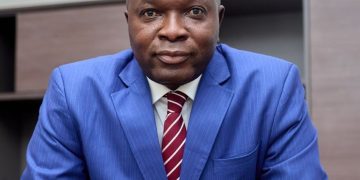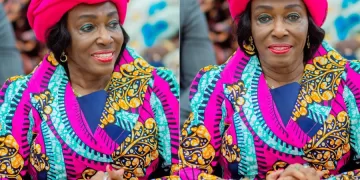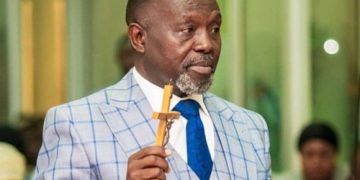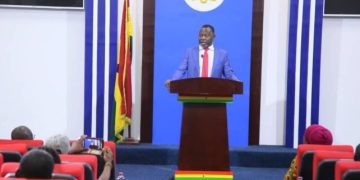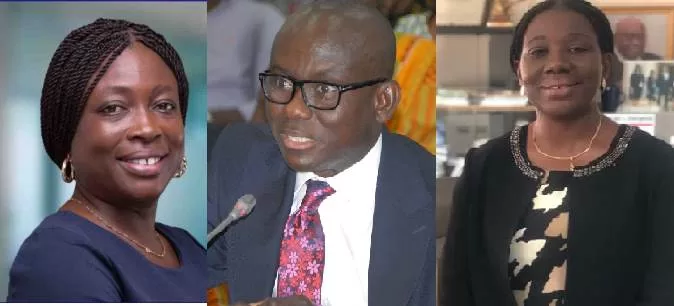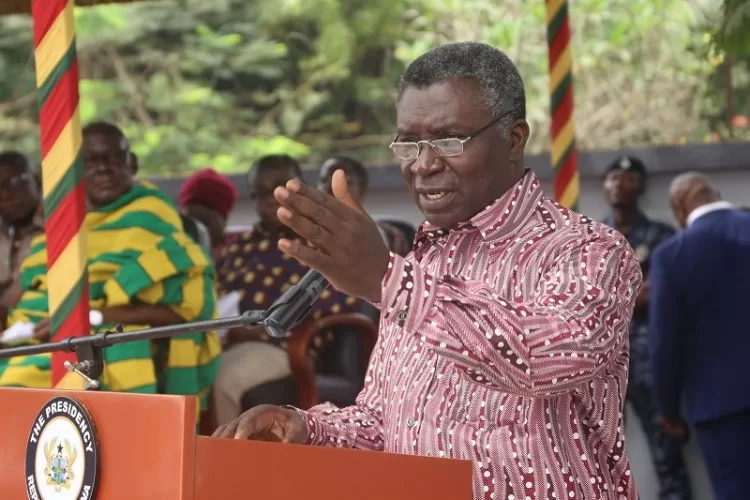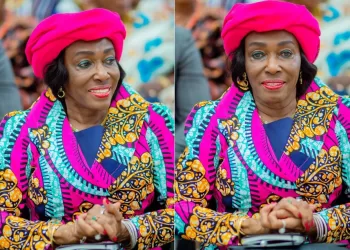The Attorney General, Godfred Yeboah Dame has filed an appeal against the decision of the High Court ordering that the criminal trial of former COCOBOD boss and two others should be heard de novo (afresh).
The Attorney General’s grounds of appeal is that the trial judge, Justice Kwasi Anokye Gyimah “misdirected himself” in the application of the principles regarding adoption of evidence in a trial.
The former COCOBOD Chief Executive, Dr. Stephen Opuni and businessman Seidu Agongo as well as Agricult Ghana Limited, are facing 27 charges, including willfully causing financial loss to the state and contravention of the Public Procurement Act in the purchase of Lithovit liquid fertiliser between 2014 and 2016.
Following the retirement of Justice Clemence Honyenuga who has been presiding over the case since 2018, the Chief Justice reassigned the matter to another judge.
On March 30, when the court reconstituted at the High Court (Land Court 2), the Attorney General, through the Chief State Attorney Mrs. Evelyn Keelson appealed to the court to adopt the proceedings of the previous judge but was vehemently opposed by counsel of the accused persons.
The parties were therefore directed to file their written argument, and on April 4, 2023 Justice Kwasi Anokye Gyimah, the new judge, ruled on the application, and ordered that the case be started afresh considering a number of issues.
The judge in his ruling recognised the fact that when Justice Honyenuga (retd) was in charge of the matter, the case was “replete with applications upon applications coming from both counsel for the accused persons challenging various aspects of the conduct of the proceedings before the previous judge some of which applications are currently pending before the Supreme Court with another one currently pending before me.
“The accused persons have time and again complained about the fairness of the trial so far and that is one of the reasons why they are vehemently opposed to the adoption of proceedings in this matter.”
The judge further stated, “The question that I keep asking myself is that even though I may have the discretion to adopt the proceedings in this matter and continue with this trial, with all the allegations, through various applications, of the unfairness of the proceedings before the previous judge, though none have been proven so far, will I be doing justice if I treat it as business as usual, adopt the proceedings and continue with the matter as it is?
“If I adopt the proceedings, I am basically adopting every act and decision that has been taken by the previous judge in the matter and I will be saddled with the same suspicions and allegations of unfairness that have been levelled against the current state of the proceedings.
“I am not by this saying that I agree with the allegations of unfairness that counsel for the accused persons have raised but I am also mindful of the fact that when there are ingrained suspicions as to the fairness or otherwise of a system or procedure, if there is an avenue open to the court that will substantially dispel the said suspicions, it will be the best course for the court to take.
“I appreciate the fact that this case has travelled for quite some time and a lot of witnesses have been called and discharged but it is my candid opinion that it will be in the interest of justice and the interest of all the parties for this court to start on a clean slate, free from all the shackles of allegations of unfairness and counter allegations of intentional delays that has bedeviled this case over its duration and that has resulted in the filing of numerous applications before this court, differently constituted, and also before the Supreme Court.
Justice Gyimah also made reference to section 80(2) (a) of NRCD 323, which states that one of the factors a court is enjoined to look at when assessing the credibility of a witness is the witness’ demeanour.
“Much as that may be the right position, in a criminal trial where the liberty of the accused is at stake and where the accused is by law presumed innocent and also entitled to a fair trial, any factor, however minimal or insignificant its effect, that will enhance the opportunities for the fair trial of an accused person should not be overlooked by the court.
“The drafters of NRCD 323 knew why they placed that provision in the Act and as a statutory provision, a court that is meant on doing justice in a criminal trial should as much as is within its power, make sure that the said statutory provision is observed. The best way that the said statutory provision can be observed is for the trial court to have a first-hand experience or observation of the witnesses called by all the parties and this can only be achieved in the present case if this court starts on a clean slate,” Justice Kwasi Gyimah stressed.
Based the above analysis and reference to a number of decided cases, the trial judge concluded, “I will with all due respect to counsel for the parties, order that this case be tried de novo [afresh]”.
But the Attorney General, Mr. Godfred Dame has noted that he is “dissatisfied” with the ruling and has subsequently run to the Court of Appeal to quash the ruling of the High Court.
In an application filed on April 18, 2023 on behalf of the Attorney General, the Director of Public Prosecutions, Mrs. Yvonne Atakora Obuobisa argued that the judge failed to consider that the material factor in adoption of evidence is the evidence properly so-called led at the trial, and not other unrelated matters.
“The learned judge in relying on irrelevant factors already disposed of by the Superior Courts, unfairly gave the accused persons a second bite at the cherry,” she said.
Yvonne Atakora Obuobisa further stated, “The learned judge erred in ignoring the right and duty of the Republic to efficiently prosecute crime and placing premium on the presumption of innocence of the accused person.”
According to the Attorney General’s Department, issues of unfairness raised by the accused have been dealt with, and that the decision of the trial judge to start the trial de novo “has occasioned a miscarriage of justice as it will hinder an efficient trial of the accused persons in the instant case”.
Yvonne Atakora Obuobisa is therefore asking the Appeal’s Court to set aside the ruling directing that the trial be started de novo and a further order that evidence led at the trial so far be adopted by the trial judge.
The court is set to hear the appeal on May 3, 2023.
Meanwhile, the High Court has ordered the parties to file statements they want to rely on in the trial by April 21, and slated April 25 for case management.


